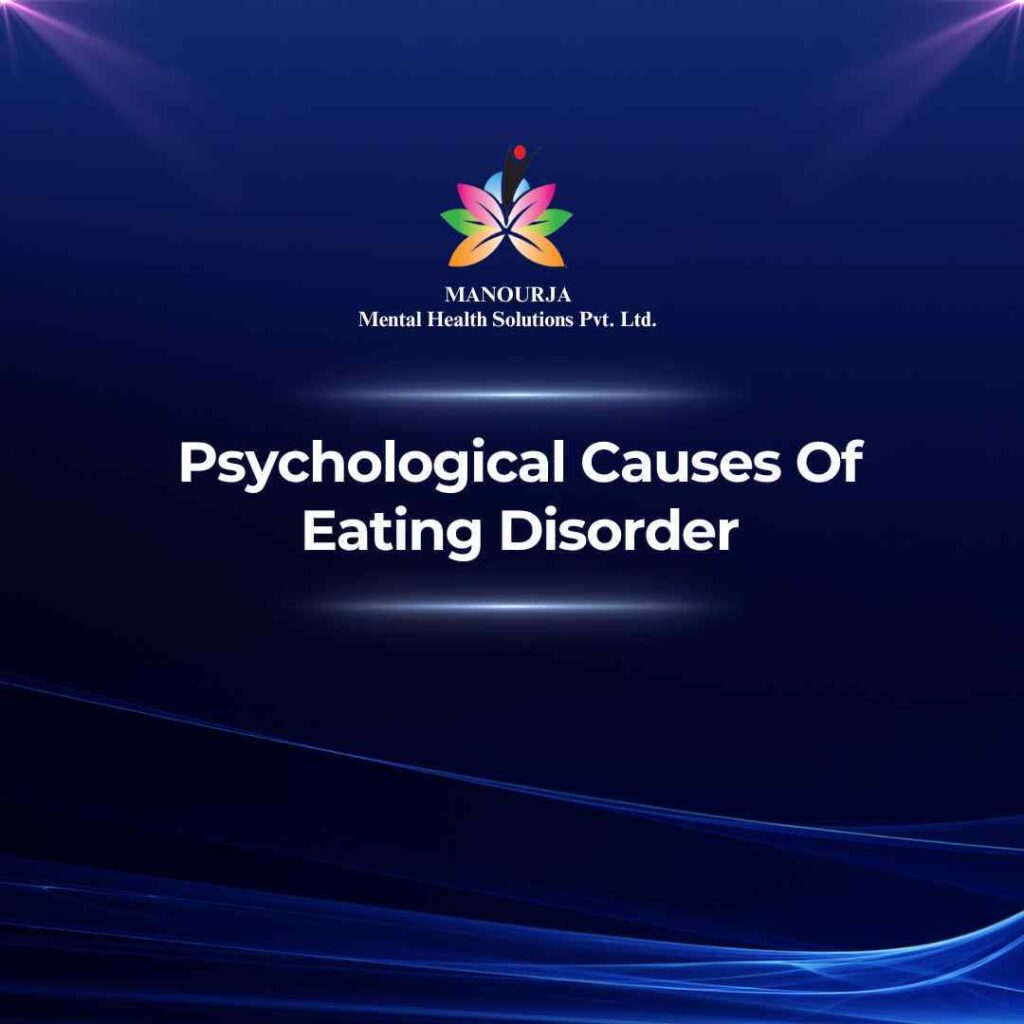Psychological Causes of Eating Disorder

Eating disorders are complex mental health conditions influenced by a variety of psychological factors. Understanding these factors is crucial for effective treatment and support. Here’s a detailed look at some of the psychological causes commonly associated with eating disorders:
Low Self-Esteem
Individuals with eating disorders struggle with poor self-esteem and feeling of inadequacy. These feelings can stem from internal pressures to meet personal or societal standards of beauty and success. The disorder may begin as an attempt to gain control or improve self-worth through body modification.
Perfectionism
Perfectionism is a significant psychological factor in eating disorders, particularly in anorexia nervosa. Individuals who are high achievers and have perfectionistic tendencies may view control over their diet and body weight as a means to achieve a sense of mastery and success. This control can lead to restrictive eating behaviors or compulsive over-exercising.
Body Image Dissatisfaction
Dissatisfaction with one’s body image is a strong predictor of eating disorders. This can be exacerbated by societal ideals perpetuated through media and culture that glorify thinness or a specific body shape. Individuals may develop obsessive concerns with their body size and shape, leading to distorted perceptions of their own bodies.
Emotional Regulation Difficulties
Eating disorders can serve as a maladaptive way to cope with negative emotions. Individuals may use food intake or restriction to manage or numb feelings of sadness, anger, stress, or anxiety. For instance, binge eating may provide a temporary emotional relief or comfort, while purging or fasting may be used to regain a sense of control over one’s emotions.
Traumatic Experiences
Experiences of physical trauma or sexual abuse can increase the risk of developing eating disorders. Traumatic events can lead to severe emotional distress and feelings of loss of control, prompting individuals to seek control over their bodies as a way to cope with the trauma.
Interpersonal Difficulties
Problems in relationships, whether with family, friends, or romantic partners, can also contribute to eating disorders. Issues such as conflict, misunderstanding, social isolation, or lack of support can trigger or exacerbate disordered eating behaviors as individuals struggle to handle these social stresses.
Fear of Maturity
Particularly in younger individuals, the onset of puberty and the associated bodily changes can trigger eating disorders. For some, restricting food intake or controlling weight might be a way to delay the physical development associated with adulthood, particularly if adolescence brings anxiety or fear.
Psychological Disorders
Eating disorders are often comorbid with other mental health disorders such as depression, anxiety disorders, obsessive-compulsive disorder (OCD), and substance abuse disorders. These conditions can both contribute to and exacerbate the behaviors and thought patterns associated with eating disorders.
Addressing the psychological causes of eating disorders typically requires a comprehensive treatment approach, including psychotherapy, nutritional counseling, and sometimes medication. Cognitive-behavioral therapy (CBT) is particularly effective in addressing the distorted beliefs and maladaptive behaviors associated with eating disorders. Other therapeutic approaches, like dialectical behavior therapy (DBT) and family-based therapy (FBT), can also be instrumental in treatment, depending on the individual’s specific needs and circumstances.
At MANOURJA, we believe in the transformative power of counseling. Our experienced therapists offer a safe and supportive space where you can explore your thoughts, emotions, and challenges. Through personalized counselling sessions, we’ll work together to develop coping strategies, build resilience, and achieve lasting positive change. Discover the path to a healthier, happier you with MANOURJA counselling services.
MANOURJA Rehabilitation Services
At MANOURJA, we’re dedicated to helping you in rebuild your life, after difficult times. Our rehabilitation services focus on understanding what you need to move forward, whether you’re recovering from addiction, trauma, or any psychological – social challenges. We create personalized plans, that are all about helping you, regain your strength and find hope again. With a caring team by your side, you’ll have the support to make real progress and take steps toward a brighter, healthier future.
